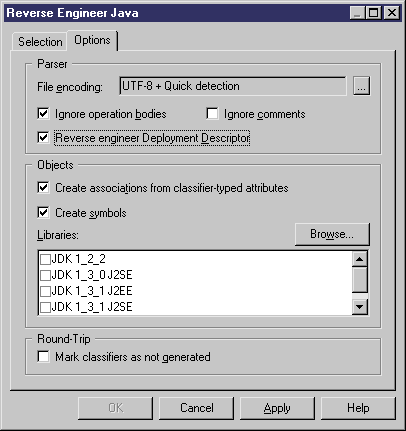You can reverse engineer servlet code and deployment descriptor into an OOM. The reverse engineering feature reverses the Java class as a servlet class, it reverses the servlet as a component, and associates the servlet class with this component. The reverse engineering feature also reverses the deployment descriptor and all the files inside the WAR.
You start reverse engineering servlet from .
Select one of the following Java formats from the Selection page, and select the Reverse Engineer Deployment Descriptor check box from the Options page:
For more information on the Java formats, see Reverse Engineering Java Code.
